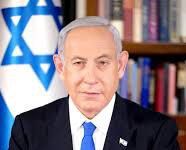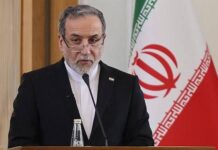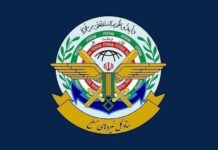Farida Mustafa graduated with a perfect score of 5.0 CGPA from the Department of Petroleum Engineering, Kuban State University of Technology, Russia in the 2016/2017 academic session. In an interview with newsmen, she talks about her educational journey, her stay in Russia and plans for the future.
How best would you capture your excitement when you eventually graduated with the perfect score?
I would say more than anything else, I felt so relieved that it ended. My only aim was to graduate with a first-class degree, so I was very pleased with the score I eventually graduated with; my hard work and dedication paid off.
Was there anything about your growing up or previous experiences that informed your decision to work towards graduating with a first-class degree?
Yes, my father is an academic and he would take nothing less than excellence in our studies; that’s one thing you can’t handle with levity (laughs). In my secondary school, if I came first but scored 95, he would say I could do better and score 98 or even more. He used to say that subsequently, we would be competing with people from different parts of the world and that is true. He’s a man of excellence and he always encouraged me to do better. It was a lot of pressure then but eventually, it paid off and that consciousness to always do better is there till today.
How easy was it to graduate with a first-class degree?
It wasn’t easy but I tried to understand what worked best for me and I stuck to it. It wasn’t easy, especially coming from a medical background.
How do you mean?
My mum is a nurse, and she made the medical profession admirable. Sometimes, I followed her to work. So, right from when I was in secondary school, I really wanted to be a doctor. When I got to senior secondary school, I didn’t bother taking further mathematics because I felt it wasn’t necessary. So, I got admission to study medicine at Ahmadu Bello University, Zaria and I was in my second year when I won a scholarship to study petroleum engineering in Russia. That was in 2012.
How easy was it for you to leave, especially having put in some years?
It was a tough decision. Let me tell you about the background. One day I saw a post about the scholarship opportunity in the hostel and felt I should give a try. I told one of my friends about it in case she would love to apply too. So, I applied. The plan was for me to get my transcripts so I wouldn’t have to start afresh but I was given oil and gas engineering. I didn’t have a say on the country I was going to. The scholarship body basically matched you to a school/country they believed was best for you. They also chose the course for us and it would seem they assigned courses based on our country’s needs, being a Federal Government scholarship. When I got the result, I didn’t know whether to be happy or sad, because I didn’t see it coming. I was bewildered. When my father saw the offer and realised that it was engineering, he said point blank that I wouldn’t take it, because medicine was what we all wanted for me. My elder brother felt the same way because they felt there was no point abandoning two years of work to go and start something different afresh. It was really a trying time for me. I was 17 then, so I needed all the advice from my family members.
What was your mum’s position?
She said I would go and she insisted (laughs). She’s a formidable woman and she gets what she wants. She felt it was important I took the offer because it was a scholarship, and she felt it was a reward for hard work and I shouldn’t let it go. That was her view; that you don’t get something like this and then leave it. Interestingly, I asked people if it was possible to go and then change my course when I got there and someone told me I could. So, I was happy and I told my dad I could change my course and he agreed. When I got to Russia, we were told we had to do about eight months to one year of language course before we would start the programme. It was after the language course that I was told that I couldn’t change my course because the Federal Government had its areas of interest for the scholarship. I felt stuck and honestly, if I had deferred my admission at ABU, I probably would have gone back to continue studying medicine. So, since I was stuck, I decided to give it my best. I was 18 at the time.
When you told your dad you couldn’t change from engineering to medicine, what was his response?
He simply said he believed it was fate, especially with the way everything worked out. He believed it was destiny. He accepted it and supported me all the way.
Since you didn’t do further mathematics or have an engineering background, how did you cope?
It wasn’t easy but I asked questions a lot. I had senior colleagues who helped me out; I would explain my academic background to them and what I needed to do to catch up. So, I had help. People advised me on what to concentrate on and all those helped. And then I read as much as I could.
You had eight months; how long did it take before you learnt the language?
Officially, I spent eight months learning the language at a preparatory school and the eight months were enough to learn how to read and write, both of which were crucial for academic work because we studied in Russian. But like every new language, learning is continuous and speaking is ever-evolving; the more you speak, the more you learn.
At the time you left Russia after your programme, how would you rate your grasp of the language?
I would say I was fluent; let’s say 70 to 80 per cent. Living in a place where not many people speak English would compel you to learn their language.
You got the Certificate of Advanced Qualification to teach Russian as a foreign language, did you plan to teach the language or you just wanted the qualification?
I planned to use the qualification to do some freelancing in language translation and further develop myself.
How easy was it learning the Russian language?
It’s tough (laughs). Russians actually pride themselves in having a rich language, and that is true because they have so many words and the grammar is elaborate. You could have as many as 10 to 11 different forms of one word. So, it’s an intense language to learn. However, like any other language, you have to speak it with the native speakers and that is the only way to get better. So, it wasn’t easy but it wasn’t impossible to learn either. Some people even say the language sounds violent (laughs). It was not easy at all but because you had very few people who spoke English in the region, you either learned fast or you got stuck.
You made 5.00 CGPA perfect score in a course you weren’t prepared for, what would you say made that feat easier?
I was determined and I worked as hard as I could. I attended lectures regularly, listened attentively and sometimes recorded the lectures so I could go over them again. This helped to reduce my workload during the examination periods. But in spite of this, I had good sleep and saw movies. I did not study every day and I dedicated at least eight hours to sleep. One thing I’m grateful for is that I work well, maybe better, under pressure. That was a form of strength for me and it was like the perfect ingredient. However, I studied really hard.
With a perfect score, were you the overall best student?
I was the overall best foreign student.
Do they have separate overall best students for home and international students?
Yes, they did. For example, the way you have the Faculty of Medicine, Department of Physiology, we had a department for Foreign Students as well as Oil and Gas Engineering. So, the Department of Foreign Students would have their best student and have their graduation while the home students would have theirs too.
Did you find it strange?
Yes, I did because we studied in the same class.
What did you find most interesting about Russia?
I found the culture intriguing and they had some unspoken rules. For example, you could not give someone an even number of flowers, it had to be an odd number. When I asked what would happen if anyone did, the person I asked laughed and said ‘you don’t do that’. And in Russia, you give men flowers, including red roses. Also, if someone invites you to their house, you can’t go empty-handed; it’s rude to do that. You have to go with something, which I think is normal. Also, when you enter a class with a coat, maybe because of the weather, it’s rude to keep it on once you enter the class, no matter how cold it is. There are warmers in class but there are times it’s still cold, especially for people who are allergic to cold but it’s rude to keep it on.
Would you describe them as friendly?
I wouldn’t say they are friendly people, but they won’t go out of their way to hurt you unless you meet the racists among them. They are intense and they don’t smile unnecessarily. I’m in the United Kingdom now, I walk on the streets and people look at me and smile randomly, but it never happened when I was in Russia. There was no reason why anyone would just smile at me.
If not that you had to leave for the United Kingdom for your master’s degree, would you have considered staying back?
I thought about it but there were too many reasons why I felt it wasn’t the best option for me. I wasn’t overly comfortable; I didn’t totally feel at home, so it wasn’t somewhere I thought I would stay. In fact, I felt immediately after our graduation I would leave but we had to spend about a month because we had to notarise our certificate and translate them, otherwise I would have been out of there the following day. Also, getting a job would have been difficult because they were not really employing black people as much as other people would. So, it would have been difficult to even get a job in my field.
Are there things you find interesting about their teaching style?
The average class size was small and examinations were mainly oral. The way examinations were conducted was that you would sit in front of the lecturer and explain what you understood about the questions he would be asking you. You would have enough time to understand the question. In my opinion, it’s better than the written form of examination.
That could take time and make students anxious because they would have to take turns.
No, it didn’t. We had a small class; we were about 21, so it didn’t take forever. When it’s your turn, you get the question, you go through them and you explain to your lecturer. They make it like a raffle draw and they have all the questions they want to ask in the examination; maybe 100. Each question paper could have five or six questions randomly selected. You pick and then you go and sit in front of your lecturer. If you covered your course, you would not have a problem and you would get the grade you deserve.
What were your most memorable moments in Russia?
Moscow is beautiful. My trip to Red Square in Moscow was very interesting and memorable. The structures are beautiful and I’m told St Petersburg is even more beautiful. The structures are really exceptional and you wonder how they were built.
What do you like most about the country and its people?
I appreciate their discipline and their time-consciousness.
Did you have any unpleasant experiences there?
Yes, there was a day we were going out and we heard a child asking the mother why we were so dark, and that could it be because we didn’t bathe. I was bewildered that don’t these people see black people on TV at least or was it that their parents didn’t tell them there are people in this world who didn’t look like them. I don’t think they educate their children as they should and those children grow up and start acting weird towards black people. And I don’t remember that mother giving the child a good response or educating the child properly.
What would you say your experience in Russia taught you about life and diversity?
There is no place like home and there is always something to learn anywhere we find ourselves.
How did you get the scholarship that took you to the UK?
It is a Nigeria Liquefied Natural Gas scholarship. They advertise it every year. After my graduation, I went back home in August 2017 for the National Youth Service Corps programme and immediately I finished, I applied because by then they had just advertised. Thankfully, I got it.
What are your plans and aspirations after your master’s degree programme?
I would like the opportunity to practise in the industry.
Were you sociable or you only focused on your studies?
I was not sociable because there were not many activities that I was interested in.
What do you think students who want to also graduate with a first-class degree should do?
Know yourself and what works for you.
Follow the Neptune Prime channel on WhatsApp:
Do you have breaking news, interview request, opinion, suggestion, or want your event covered? Email us at neptuneprime2233@gmail.com





